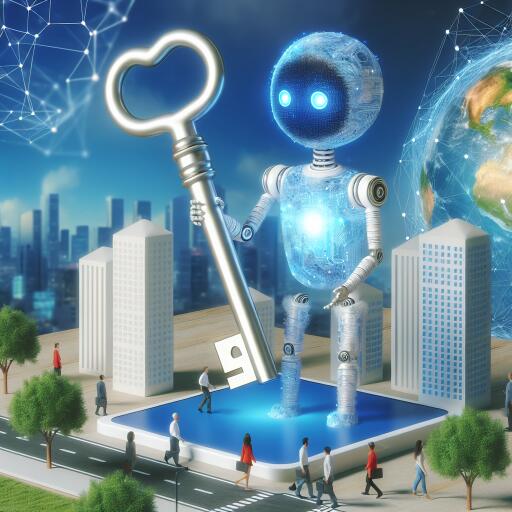
Nixon-Saintil AI holds the key to resilient cities
Over 4.4 billion individuals dwell in urban landscapes that are evermore vulnerable to climate-induced calamities. Coastal metropolises face the dual threats of escalated sea levels and flooding, while inland, cities are being scorched by heat waves that grow more intense with each passing year. The challenges of our changing climate and shifting demographics are pushing our urban infrastructures to their limits, with developing regions especially at risk of compounded health and economic crises.
Yet, it’s within these urban centers where the battle against climate change might be won or lost. Cities are at the forefront, responsible for an outsized portion of global carbon emissions and energy consumption. With urban populations predicted to swell to 68% by 2050, the need for sustainable, resilient urban development is undeniable.
Enter artificial intelligence (AI). This revolutionary technology holds promise not just in advancing urban climate resilience but in spearheading sustainability across the board. Ethically and thoughtfully applied, AI could be the key to unlocking innovative climate solutions, fostering science-based development, and ushering in a new era of rapid innovation, prioritizing those who are most vulnerable.
AI’s potential as a tool for urban resilience is vast, beginning with its ability to manage the enormous data requirements needed for accurate climate modeling and informed urban planning. AI can offer us a new lens through which to view our cities, combining real-time and historical data to enhance disaster response and preparedness. This isn’t just about making data more accessible; it’s about turning that data into action, from the way we manage critical infrastructure to how we live our daily lives in urban spaces.
Moreover, AI can drive efforts to make city operations more environmentally friendly. By integrating AI in the analysis of energy, water, and waste systems within buildings, we can gain insights that encourage more sustainable living and operational choices. Enhanced data collection through connected devices could also revolutionize urban infrastructure maintenance, making it not just more effective but significantly more efficient.
But the impact of AI doesn’t stop at maintenance and operation. It has the power to transform public transportation systems, reduce emissions through traffic optimization, and even guide the expansion of urban green spaces, aiding in the preservation of biodiversity and natural resources.
Despite these promising avenues, recent studies indicate that while a majority of cities are exploring AI’s potential, actual implementation remains minimal. This gap highlights the vital need for accessible technology and the skills to use it effectively, a challenge accentuated by the uneven distribution of climate threats. In cities around the world, the poorest and most vulnerable populations are often the most affected by environmental challenges — and stand to benefit the most from AI-driven solutions.
Addressing this issue requires a collective effort. Providing equal access to climate tools, enhancing AI education and training, and tailoring programs to the needs of marginalized urban populations are essential steps toward building resilient cities. The private sector, in partnership with public institutions and nonprofits, can play a critical role in this endeavor.
By harnessing the power of AI, we can work towards creating urban environments that are not only more resilient in the face of climate change but also more inclusive and sustainable. The tools and technology are at our disposal; it’s our responsibility to ensure they are used to their fullest potential, for the benefit of all urban dwellers and the planet itself.





Leave a Reply